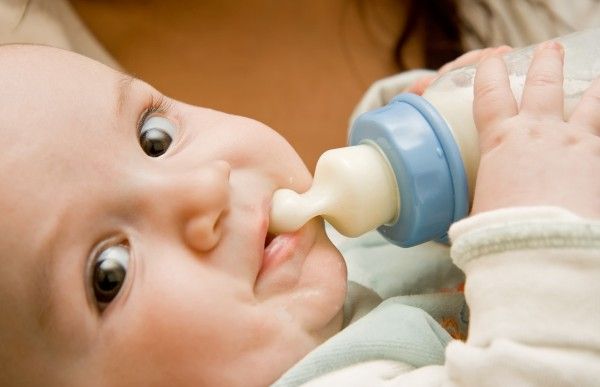
Nowadays mothers tend to use artificial feeding as alternative Assistant to feed the babies, so as to ease and do not need much time. The baby could be completely depends on the formula since the first few months, where they are manufactured so that emulates the mother's milk and meets the nutritional needs of the child, to provide all the essential nutrients known in appropriate amounts. And derive the majority of types of industrial milk from cow's milk, but a few types of it derived from soybeans, intended for children who may be allergic to a protein found in cow's milk.
Benefits of artificial feeding
First, not limiting feeding the baby to the mother, but also involved other family members. Thus, the mother help in finding a space of time accomplish the other works next to the care of her child.
Second, this method allows to know the amount of milk that is fed by the child.
Thirdly, the mother can eat different foods and medicines, which may harm the natural Bhlipea.
Fourth, studies have shown that a child, which deals with industrial milk be sleeping for longer periods for which suckle naturally.
The risks of artificial feeding
The quality of industrial milk does not live up to the natural advantages of breast milk, powdered's milk does not contain the antibodies. The formula is expensive financially, takes effort in preparation, preparation and cleaning. The latter may cause swelling of the stomach and infant colic, with the possibility of infecting children with sensitivity of industrial milk and installed, and increase the likelihood of the risk of contamination. In addition to the increased susceptibility to infection Balenzlat cramps, diarrhea, infections and tooth decay preservation area.
